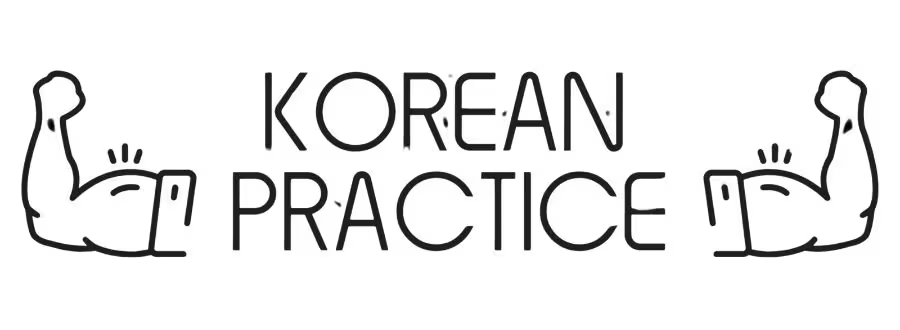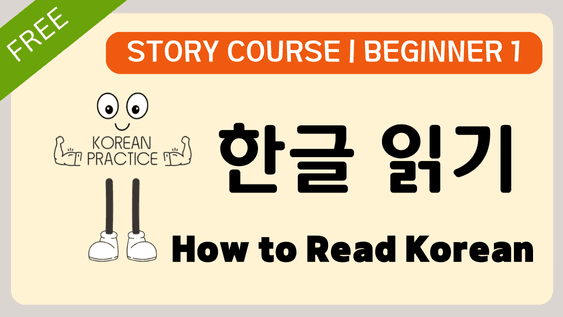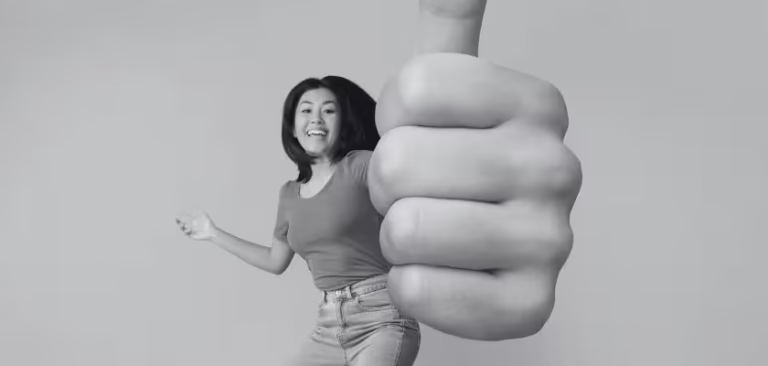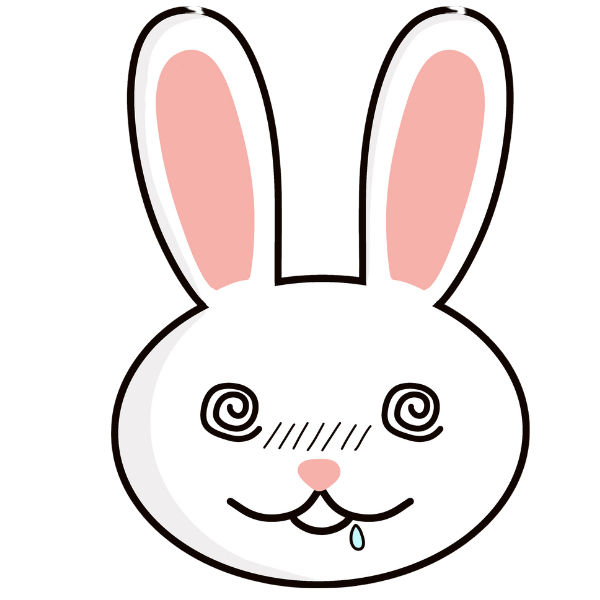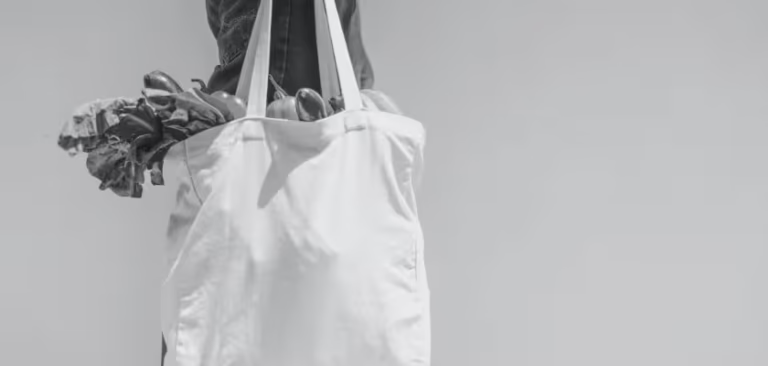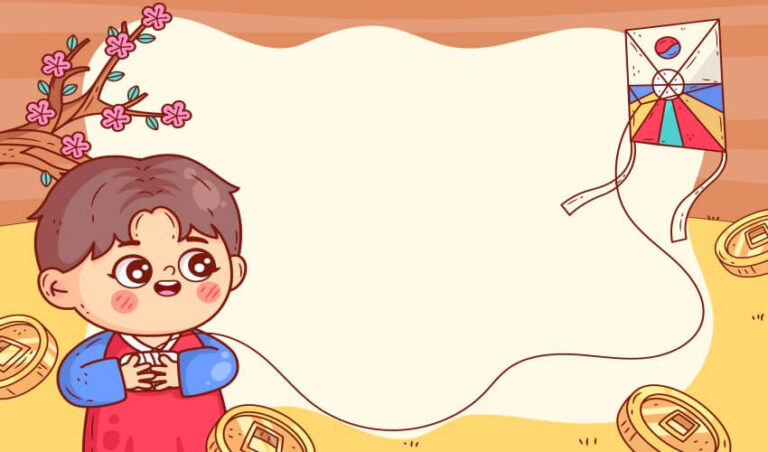물어보다 meaning
The Korean verb 물어보다 meaning is “to ask”—specifically, it carries the nuance of “to try asking” or “to ask and see.” It’s formed by combining two verbs: 묻다 = to ask
보다 = to try (literally “to see,” but often used as “to try doing something”)

Now that you know the basic 물어보다 meaning, let’s take a closer look at how it’s actually used in real Korean conversations — because understanding the nuance of 물어보다 can completely change the way you ask questions in Korean!
Follow These Steps
Step 1: Listen & Shadow
Follow the audio and speak along with the highlighted text.
Step 2: Check & Learn
Use the breakdowns to understand grammar, vocab, and meaning.
Step 3: Review Visually
Watch the reading practice video to reinforce the story.
Go Deeper
STEP 1 Listen & Shadow
Click play and speak along with the highlighted text below
Table of Contents
STEP 2 Check & Learn
물어보다 vs 묻다: What’s the Difference?
Both verbs mean “to ask,” but there’s a small nuance:
- 묻다 = to ask (basic form, sometimes used in formal or written language)
- 물어보다 = to try asking (more common in speech, softer, polite tone)
For example:
- 기자가 질문을 묻다. (A reporter asks a question.) — Slightly more formal.
- 친구에게 질문을 물어보다. (Try asking a friend a question.) — More natural in casual conversation.
Example Sentence
Original Korean Sentence
모르면 그냥 물어보세요.
Pronunciation Guide
모르면 (mo-reu-myeon) 그냥 (geu-nyang) 무러보세요 (mu-reo-bo-se-yo).
Meaning and Context
모르 (to not know; stem of 모르다) 면 (if) 그냥 (just) 물어보 (to ask; stem of 물어보다) 세요 (I’m telling you to do this in a polite way).
English Translation
If you don’t know, just ask.
Literal Translation
If (you) don’t know, just ask.
✍️ Related:2 배가 아프다 Meanings : Physical Pain & Jealousy
Conjugating 물어보다
Since it’s made of two verbs, we conjugate 물어보다 like any other regular -다 ending verb. Here are a few forms:
| Tense | Conjugation | Example |
|---|---|---|
| Present | 물어봐요 | 지금 물어봐요. (I’m asking now.) |
| Past | 물어봤어요 | 어제 물어봤어요. (I asked yesterday.) |
| Future | 물어볼 거예요 | 나중에 물어볼 거예요. (I’ll ask later.) |
| Formal | 물어봅니다 | 선생님께 물어봅니다. (I ask the teacher.) |
What About 물어요?
- 물어요 is the present tense of 묻다 (to ask). It’s conjugated by changing the irregular verb stem 묻- to 물-, then adding -어요.So:
- 묻다 → 물어요 = (I) ask
- Not to be confused with 물다 (to bite)!
Example Sentence
Original Korean Sentence
그 사람한테 뭐라고 물어봤어요?
Pronunciation Guide
그 (geu) 사람한테 (sa-ram-han-te) 뭐라고 (mwo-ra-go) 무러봣써요 (mu-reo-bwat-sseo-yo)?
Meaning and Context
그 (that) 사람 (person) 한테 (to) 뭐 (what) 라고 (a quoting particle; used to quote speech or thoughts) 물어보 (to ask; stem of 물어보다) 았 (past tense) 어요? (I’m asking you polite and friendly).
English Translation
What did you ask that person?
Literal Translation
What (you) asked to that person?
✍️ Related: 꿈을 꾸다 Meaning – 2 Korean Usages Explained Clearly
Example Sentence
Original Korean Sentence
선생님께 물어봐도 돼요?
Pronunciation Guide
선생님께 (seon-saeng-nim-kke) 무러봐도 (mu-reo-bwa-do) 돼요 (dwae-yo)?
Meaning and Context
선생님 (teacher) 께 (to; honorific) 물어보 (to ask; stem of 물어보다) 아도 돼요? (Is it okay; in a polite and friendly).
English Translation
Can I ask the teacher?
Literal Translation
Can (I) ask to teacher?
✍️ Related: 얼굴이 두껍다 Meaning – 3 Clear Examples Explained
Step 3: Review Visually
Let’s review everything you learned through a visual story.
Start the Story Course
Looking for super easy way to learn Korean?
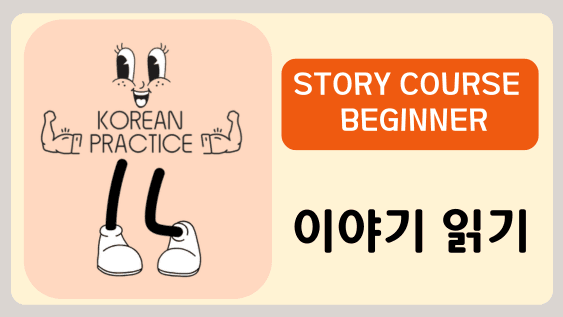
Most Korean courses stop at grammar. Mine goes beyond — with stories, Story Style Breakdown™, and real practice to help you speak.
FAQs (What You Might Still Wonder About)
Is there a difference between “물어보다” and “질문하다”?
Many learners wonder when to use 질문하다 instead of 물어보다. Both mean “to ask,” but 질문하다 is more formal and used for written or academic contexts. Curious about when each feels natural? Let’s explore the nuance.
Why does “물어요” come from “묻다,” not “물어보다”?
This irregular conjugation confuses even intermediate learners! Learn how 묻다 → 물어요 follows a special pattern that looks similar but means something slightly different.
Can you use “물어보다” with “에게” and “한테”?
Both particles mean “to (someone),” but do you know which one sounds more polite when using 물어보다? Let’s break it down with examples.
What’s the polite way to say “Can I ask you something?” in Korean?
There’s more than one way to say this — from 물어봐도 돼요? to 여쭤봐도 될까요? depending on who you’re speaking to.
How is “물어보다” used differently in spoken vs written Korean?
Korean has subtle tone shifts between everyday speech and writing. Learn why 물어보다 sounds friendly in speech, but 묻다 often appears in news or formal writing.
What’s the cultural nuance behind “물어보다”?
In Korean culture, directly “asking” can sometimes feel too forward. 물어보다 softens your tone — here’s how it reflects Korean politeness and humility.
Can “물어보다” mean “to check” or “to find out”?
Yes — in some contexts, 물어보다 goes beyond just “asking.” For example, 길을 물어보다 means “to ask for directions.” Discover other idiomatic uses that make your Korean sound natural.
Final words
If you’re learning Korean, try using 물어보다 in real conversations—it’s one of the most useful and natural-sounding verbs for asking questions politely. Understanding the subtle difference between 묻다 and 물어보다 meaning can help you sound more fluent and natural in Korean.
Whether you’re wondering how to conjugate 물어보다 in the present tense like 물어요, or past tense like 물어봤어요, this verb will come up again and again in daily life. So don’t hesitate—물어봐도 돼요 (It’s okay to ask)! Practice it, speak it, and get comfortable with the structure. Knowing when to use 묻다 vs 물어보다 is a great step forward in your Korean learning journey.
